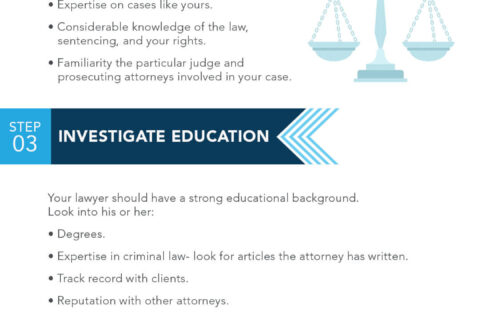Demystifying Misdemeanors and Felonies: Definitions, Penalties, and Legal Defense
Most crimes likely to lead to an arrest and court proceedings fit into one of two broad categories: misdemeanors or felonies. The classification a crime receives is largely based on its seriousness and the corresponding penalties.
Defining Misdemeanor and Felony
Both types of crimes can be committed against a range of victims, including individuals, property, or the government. Being charged with either puts a significant mark on your criminal record and may force you to face certain punishments.
Misdemeanors include less serious crimes, like petty theft, simple assault, and traffic violations. Although misdemeanors are less severe than felonies, they still represent a breach of the law and come with repercussions.
Felonies are severe crimes often involving violence and are considered more serious than misdemeanors. Examples include burglary, arson, rape, and murder. The gravity of these crimes reflects the harm they cause to individuals or society.
Understanding the Penalties for Misdemeanors and Felonies
The punishments for committing a misdemeanor or felony differ significantly in magnitude and implication. For both, the exact sentence depends on several factors, including the nature and severity of the crime, the harm caused, and the offender’s criminal history.
Misdemeanor penalties usually involve less than a year of incarceration in a local or county jail, probation, fines, or community service. Misdemeanor convictions stay on your criminal record, potentially impacting future employment or educational opportunities.
Felony punishments often involve a minimum of one year in a state or federal prison, with sentences potentially reaching life imprisonment or even capital punishment in extreme cases. Convicted felons also lose the right to vote, hold public office or own firearms. Finding employment or housing with a felony on your criminal record can be difficult as well.
Creating a Legal Defense
Whether you’re faced with a misdemeanor or felony charge, having a solid legal defense is crucial. The strategies your lawyer employs depend on the specific circumstances surrounding the charge. Some common approaches include:
- Challenging the evidence: An experienced attorney can critically examine the evidence against you, highlighting any inconsistencies, biases, or lack of reliability.
- Investigating unlawful procedure: Any flaws in the police procedure, like unlawful searches or interrogation, can form a strong defense.
- Asserting affirmative defenses: These encompass self-defense, insanity, or coercion, where you admit to committing the crime but present reasons for your actions.
- Exploring plea bargains: Negotiating a plea bargain with the prosecutor may result in a lesser charge or reduced sentence.
Finding Quality Legal Representation
Choosing the right criminal defense lawyer can significantly impact the outcome of your case. At Richards & Richards Law Firm, we provide our clients with the highest quality legal services in Ogden, UT. Our experienced, bilingual team is adept at handling a broad range of legal issues, including misdemeanors and felonies. We believe everyone deserves a fair defense and will uphold your rights in court. If you or a loved one is facing criminal charges, call us today at 801-621-7443 to speak with one of our defense attorneys about what comes next.


